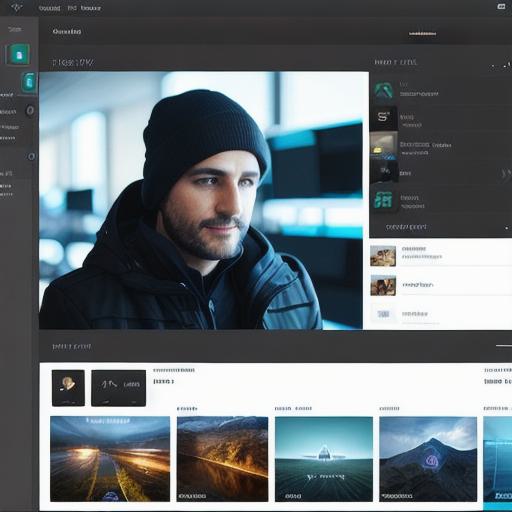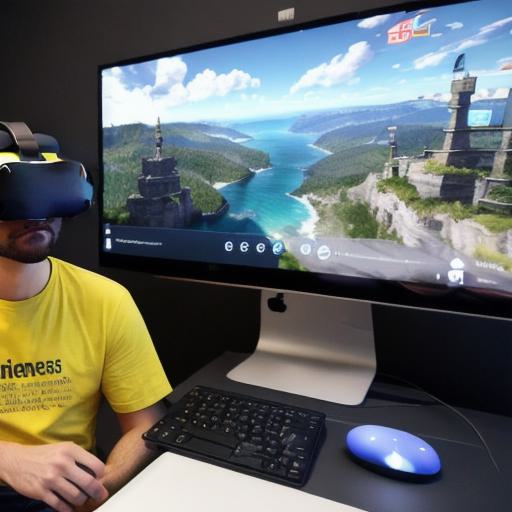Subtitle: Which Platform is Better for Virtual Reality (VR) Development?
Introduction:
Virtual Reality (VR) development has gained significant attention in recent years, and two powerful engines dominate this field: Unity and Unreal Engine. Both platforms offer unique features and capabilities that cater to diverse VR projects. In this comparison, we’ll explore the key aspects of Unity and Unreal Engine, helping you make an informed decision on which platform is better suited for your VR development needs.
Subtitle: Unity – A Versatile Powerhouse
Unity:
1.1 User-friendly Interface: Unity has a simple and intuitive interface, making it an ideal choice for beginners and smaller teams. It provides various templates and assets to help users get started quickly.
1.2 Cross-platform Support: Unity supports 25 platforms, including VR, AR, and desktop, making it a versatile option for developers. It also offers the largest community of users, which can be helpful for getting support and finding resources.
1.3 Asset Store: Unity’s Asset Store provides a vast collection of pre-built assets that can save time and reduce development costs. These assets include models, animations, scripts, and plugins.

Subtitle: Unreal Engine – A Powerful Rendering Engine
Unreal Engine:
2.1 Advanced Rendering Capabilities: Unreal Engine is renowned for its high-quality rendering capabilities and real-time visual effects. This makes it an excellent choice for VR projects that require stunning graphics and immersive experiences.
2.2 Blueprint Visual Scripting: Unreal Engine offers a powerful visual scripting system called Blueprints, which simplifies the development process for non-programmers. It enables users to create complex logic without writing code.
2.3 Large Library of Plugins and Assets:
Unreal Engine has an extensive library of plugins and assets that can be used to enhance functionality and save development time. This includes tools for animation, physics, and visual effects.
Subtitle: Performance Comparison
Performance:
Both engines offer impressive performance capabilities, but their approaches differ. Unity is known for its efficiency in handling complex scenes and its ability to scale well, making it a suitable choice for projects with significant optimization needs. On the other hand, Unreal Engine is renowned for its high-quality rendering capabilities, which may result in increased hardware requirements and potentially lower performance on less powerful systems.
Subtitle: Summary – Choosing the Right VR Development Platform
Summary:
Both Unity and Unreal Engine have their unique strengths, and the choice between them ultimately depends on your project’s specific requirements. If you value a simple, intuitive interface, cross-platform support, and a large community of users, Unity might be the better option for you. Alternatively, if your VR project demands high-quality rendering capabilities, advanced visual effects, and easy access to plugins and assets, Unreal Engine is worth considering.

Subtitle: Explore Further
Explore Further:
To dive deeper into each platform’s features and functionalities, consider visiting their official websites (
Unity:
https://unity3d.com/;
Unreal Engine:
https://www.unrealengine.com/) or joining their respective communities to learn from other developers and find valuable resources. Additionally, try both engines through free trials to gain hands-on experience and make an informed decision based on your project’s needs.
